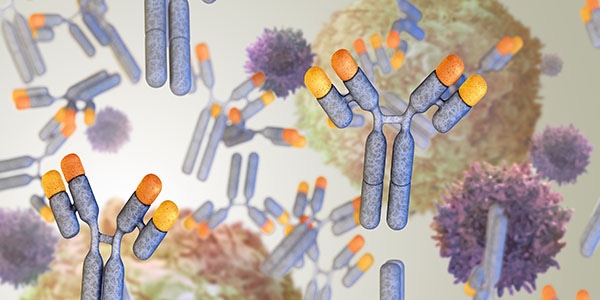Voices of Biotech
Podcast: MilliporeSigma says education vital to creating unbreakable chain for sustainability
MilliporeSigma discusses the importance of people, education, and the benefits of embracing discomfort to bolster sustainability efforts.
August 26, 2019

Sponsored Content
With breakthroughs in molecular engineering and antibody humanization, monoclonal antibodies (mAbs) are one of the fastest-growing classes of biopharmaceuticals for most clinical indications. In 2017, 10 therapeutic monoclonal antibodies were approved in the EU or US with nine additional candidates under regulatory review and 60 in phase III clinical trials 1. mAbs are the backbone of many treatment modalities including unconjugated therapeutic antibodies, antibody drug conjugates, bispecific antibodies and CAR-T cell therapy. Many of the approved antibody drugs engage the same target or target multiple members of a single signaling pathway. For example, multiple approved antibody drugs target the human epidermal growth factor receptor 2 (HER2), the B-cell antigen CD20 and the programmed cell death 1 ligand (PDL1), although the mechanism of action, antigenic epitope and antibody format differs. This highly competitive landscape incentivizes drug developers to produce next generation antibody drugs against new targets with improved mechanism of actions, pharmacokinetics and delivery systems (Reviewed, 2).
The next generation of antibody drugs are focusing on more challenging therapeutic targets such as G protein-coupled receptors (GPCR), necessitating the use of high throughput methods to perform large screening campaigns and software capable of easily analyzing large multiplexed data sets. The Intellicyt platform provides an integrated solution that rapidly produces actionable results driving antibody discovery and development forward. The Intellicyt® iQue Screener platform combines high throughput sampling, flow cytometry detection, and on board analysis with plate level analytics that deliver rich content with sampling times of less than 20 minutes for a 384 well plate. Eliminating the dead volumes of traditional flow cytometry, assay volumes can be reduced to microliters saving precious cells and reagent costs. Data acquisition, analysis and visualization happen on the fly for each plate using user defined templates, dramatically reducing the time and effort to generate useful results.
In this Application Note, we show how ModiQuest Research applies the Intellicyt platform in their antibody discovery process. The ModiQuest antibody discovery workflow is divided into three stages:
1. Target cell line engineering to generate cell lines that express high surface levels of the target antigens
2. Immunizing mice with multiple types of antigens, followed by testing of the immune sera for binding to target antigens;
3. Large-scale screening of hybridoma clones for antibody binding and target specificity.
You May Also Like